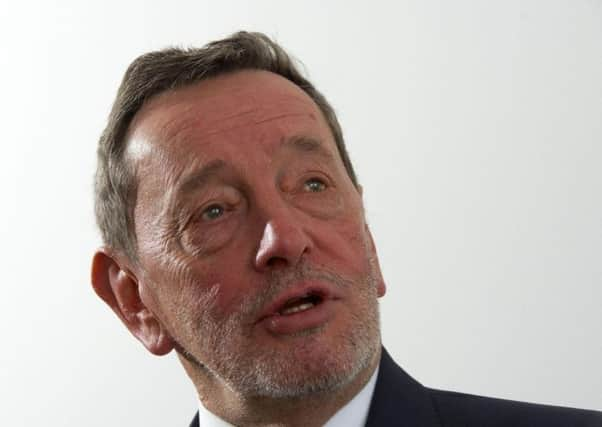David Blunkett: Sheffield mayor is a step towards united Yorkshire


They would be wrong. For although there has been great controversy both within South Yorkshire and across the historic county as a whole, the resource and powers devolved over the next year or two to this particular city region will have greater importance for Yorkshire than many might think.
Part of the controversy has been the wish for Barnsley and Doncaster’s leadership to instead back a Yorkshire-wide mayor. That long-term dream is shared by the leaders of the bulk of the city and district authorities across the county. But the Government has been very clear over the last two years that the original “city deal”, with the four metropolitan districts in South Yorkshire (and at one time local authorities in the North Midlands), should stand.
Advertisement
Hide AdAdvertisement
Hide AdFor me, the issue has never been one of the Sheffield City Region or a Yorkshire-wide election. The two seem to me to be perfectly compatible if, and for some it has been a big if, the idea of an incremental approach makes common sense.
This could quite easily then form a building block to a future wider deal for those who believe that it is in the best interests of the whole of Yorkshire to come together.
There are many arguments for and against this. Yorkshire is, in population, the size of Scotland, and would be by far the largest area with a single elected politician outside London. This could be a good thing in terms of the clout (as we in Yorkshire call it) that this would give. Of course the additional resource that could be drawn down on would be substantial – not just from central government but collectively across the area.
On the other hand, the further away the politician elected is from those actually engaged in the election, the more likely that alienation, disinterest and downright antagonism is likely to emerge.
Advertisement
Hide AdAdvertisement
Hide AdSo, there is a balance to be struck between just how large an area has to be, and how distant from those that the politicians serve, before it becomes counter-productive.
But all this is for the future. The challenge now is to get an elected mayor, with sufficient backing, and therefore turnout in the election on May 3 to provide legitimacy and to ensure that there is a voice for the area that can negotiate with the Government, and the local authorities. This is necessary to draw down the cash which has already been forgone for the last two years, and some of the powers that have been promised from the start of negotiations over the “city deal”.
One illustration of how urgent all this is can be seen from a paradox. We already know that the amount of investment in London and the South East is vastly greater then we have in our region. Something like a ratio of 10 to one.
But few people seem to realise that there can be a detrimental knock-on effect from the substantial investment in transport that currently is concluding in the capital.
Advertisement
Hide AdAdvertisement
Hide AdWhat is known as Thameslink, linked to Crossrail, is going to improve journey times and convenience for a very large number of people in and around London.
It comes however at a considerable price. It means that at least for the time being, journey times from Sheffield to London, with trains terminating at St Pancras, will find the timetable adjusted in the wrong direction.
In other words, there will now be slower trains and greater inconvenience. This is all to do with signalling and scheduling, which will result in an eight- minute addition in journey time for the early morning Master Cutler service, which is of course a crucial business journey.
Smaller delays will be noticed through the rest of the day and promises that things will improve in future sound hollow given that the Transport Secretary Chris Grayling has a record of cancelling his own promises, never mind those of his predecessors – including on electrification.
Advertisement
Hide AdAdvertisement
Hide AdSo, what is this got to do with the metro mayor? Well quite a lot. It is after all one of the key functions of the new elected mayor to deal with the question of infrastructure and how the economy, employment and productivity of the area affected can be improved by negotiating with government for both power and resources.
By way of an example, consider the long-awaited, much promised and never present, HS3. Joining up the major urban areas across the whole of North of England, this would form a genuine attempt at the Northern Powerhouse again, something much talked of but little noticed by long-suffering men and women east of the Pennines.
It is time to come out from the shadows. To embrace the opportunity of an elected mayor, to see it as just one part of shifting the axis from London and Greater Manchester to London and the whole of the North of England.
Whatever the aspiration of a Greater Yorkshire, the success in years to come of the elected mayor for the Sheffield City Region can only be good news for all of us.
David Blunkett is a former Cabinet minister who was MP for Sheffield Brightside and Hillsborough from 1987-2010. Now a Labour peer, he will be writing a monthly column for The Yorkshire Post.